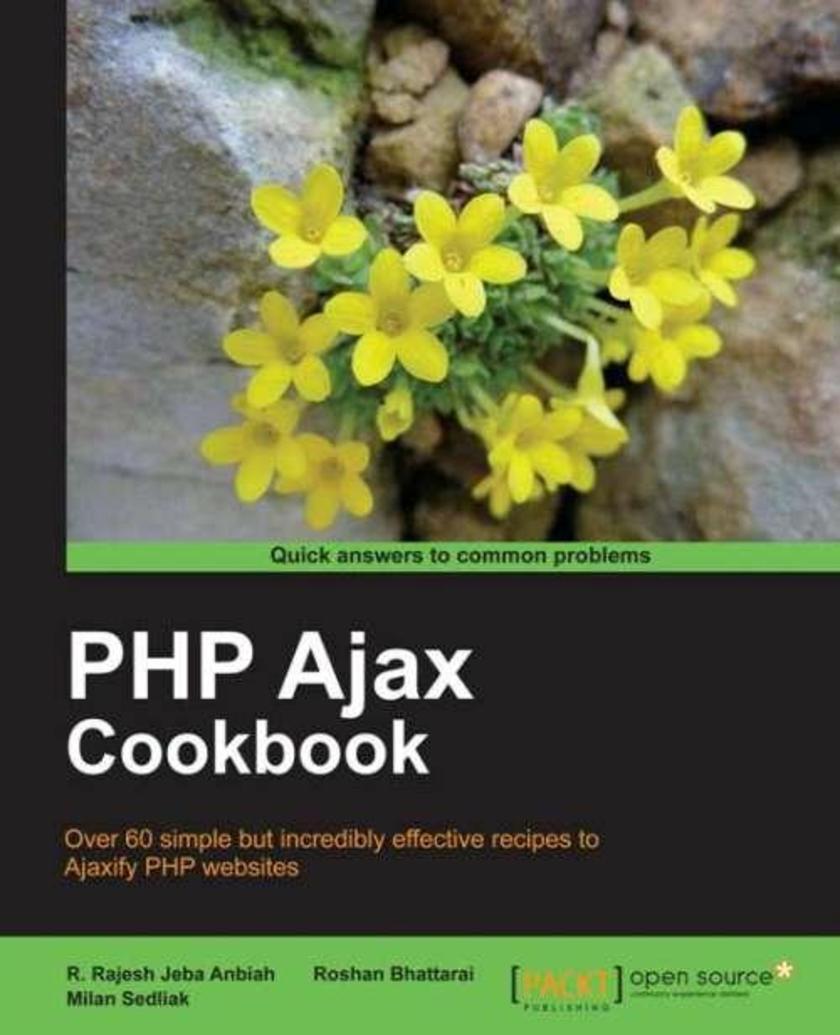
PHP Ajax Cookbook
¥80.65
This book contains a collection of recipes with step-by-step directions to build SEO-friendly websites using standard Ajax tools. Each recipe contains behind-the-scene explanations to PHP Ajax questions. This book is an ideal resource for people who like to add Ajax features to websites and who prefer standards and best practices for building SEO-friendly websites. As the book covers advanced topics, readers need to be aware of basic PHP, JavaScript and XML features.
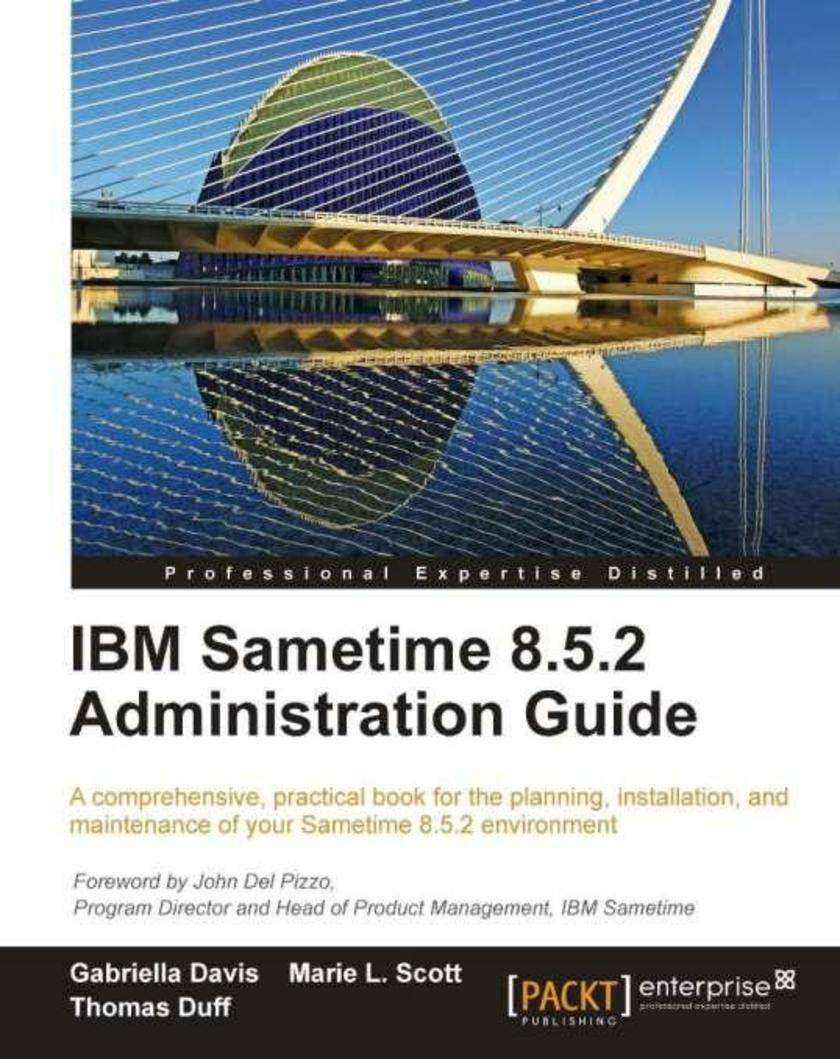
IBM Sametime 8.5.2 Administration Guide
¥125.34
The IBM Lotus Sametime 8.5.2 Administration Guide uses a practical, no-nonsense approach to give you the essential information you need. Using realistic scenarios, you learn how to configure and maintain your environment to meet your needs and take advantage of the flexibility offered in Sametime 8.5.2. If you are responsible for installing and administering Sametime 8.5.2, then this book is for you. If you’re completely new to Sametime administration, this book will serve as your roadmap. If you’re making the jump from a prior version of Sametime, then you’ll see how Sametime 8.5.2 differs and how you work with the new configuration. Even if you already have Sametime 8.5.2 up and running, this guide will answer those questions you may still have of why and how the various server components work.

Microsoft Dynamics CRM 2011 New Features: The real-world tutorial
¥80.65
This book is packed with practical steps and screenshots to make learning fun and addictive. You will learn to build a complete Airline Compensation Management system using Dynamics CRM 2011. If you want a focused book that gets you up-to-speed with the new features of Microsft Dynamics CRM 2011 then this is the perfect book for you.
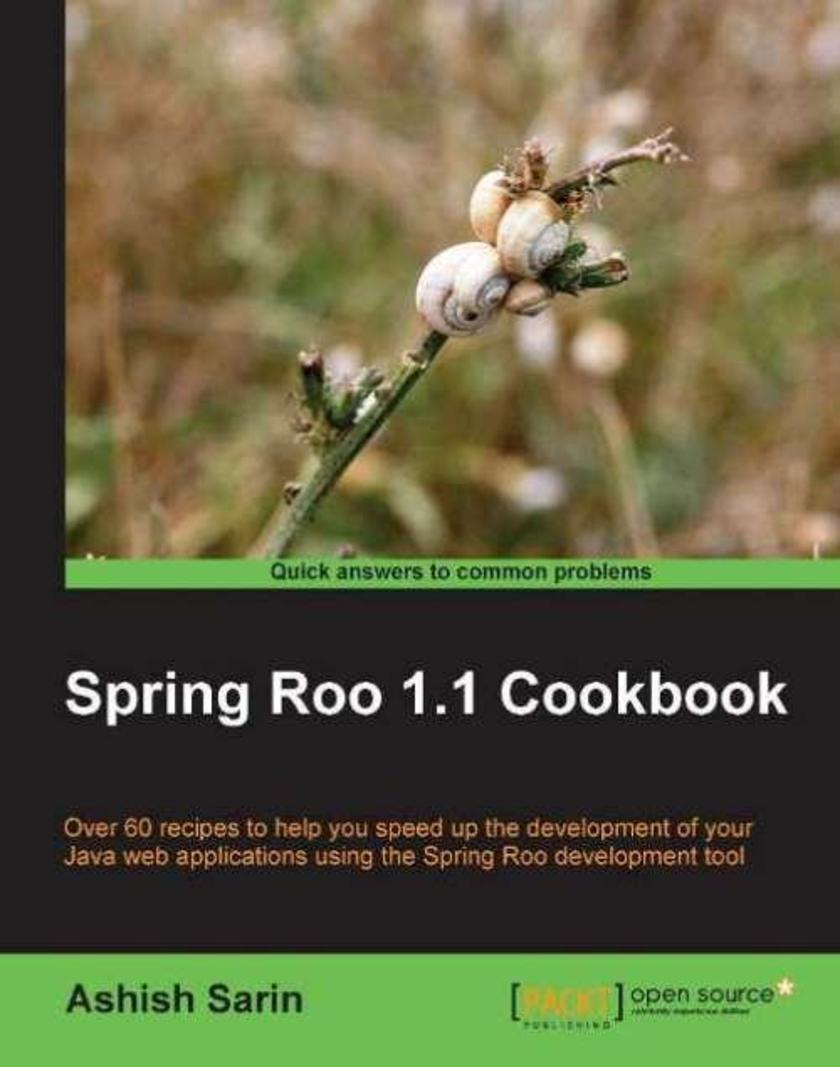
Spring Roo 1.1 Cookbook
¥90.46
This is a cookbook full of recipes with the essential code explained clearly and comprehensively. The recipes are organized so well that you will have no problems in using this cookbook as a reference too. Spring Roo 1.1 Cookbook is for developers new to the Spring Roo tool but with experience developing applications using Spring framework, AspectJ, JPA, GWT, and technologies/frameworks supported by Spring Roo. If you are new to the Spring framework, then it is recommended to refer to a text covering Spring, before reading this Cookbook.

Microsoft SharePoint 2010 Development with Visual Studio 2010: Expert Cookbook
¥90.46
This book follows a step-by-step approach to learning the building blocks of SharePoint application development. This book focuses on SharePoint 2010 development using Visual studio 2010. The book provides a hands-on approach to solving problems and creating business solutions for enhancing SharePoint 2010 environment. This book is for .NET developers to understand the building blocks for SharePoint 2010. Although the book can be used by beginners, it is recommended to have understanding of the previous versions of SharePoint. Developing SharePoint solutions needs solid understanding of ASP.NET architecture. The book assumes that the reader is familiar with ASP.NET technology and development concepts.
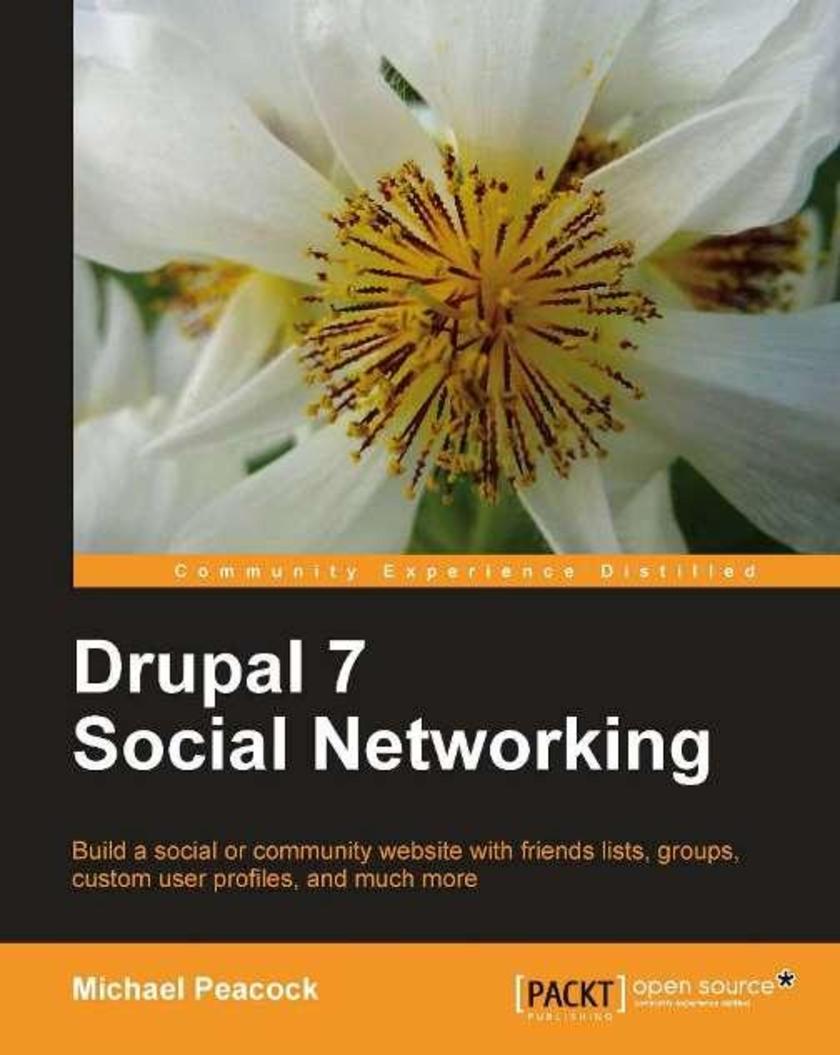
Drupal 7 Social Networking
¥80.65
This book is packed with clear instructions and careful explanations for creating a powerful social networking site using Drupal 7. With each chapter, you add new features and content until your social network is ready to be released to the Internet where it can grow. By the end of this book, you will have a powerful social network which you can either choose to model on the case-study, or create to your own unique design. This book is aimed at anyone looking to create their own social networking website, including: Businesses – building a social network around a product or service can improve your company profile and increase customer loyalty, while an internal social network gives you employees a place to keep resources, discuss ideas, raise concerns, and keep up to date on company policies. Hobbyists – create a community around your hobbies and interests; create a local or distributed user group. Organizations and charities – raise your profile, promote your events, services, and fundraisers, and get help from the community in organizing them. Families – for large families based across the country or across the globe, keep up to date with everyone, and let everyone know what you are up to. You don't need any experience of Drupal or PHP to use this book. If you are a Drupal user you will find this book a great way to rapidly tailor an existing installation into a socially orientated website.
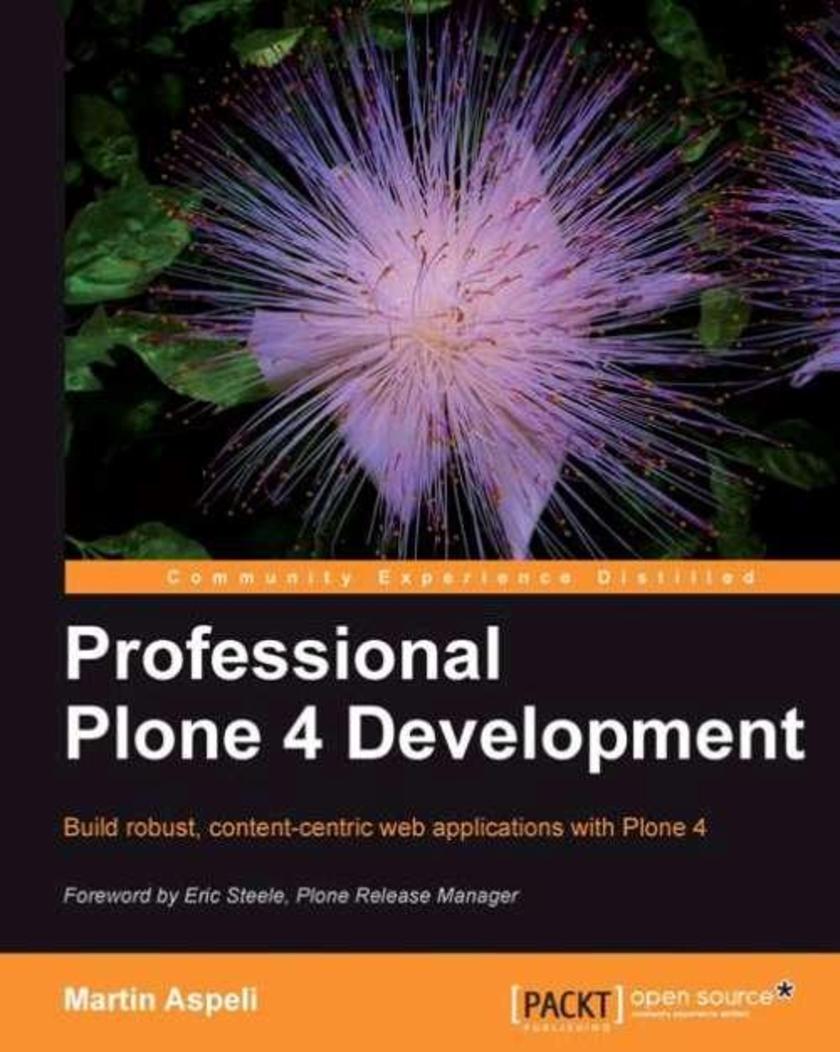
Professional Plone 4 Development
¥107.90
Professional Plone 4 Development is written in a clear conversational easy-to-understand style. This book cuts short the preamble and gets straight to the point - building robust, content-rich web applications with Plone 4. Detailed real world examples are provided for each chapter. This book assumes that the reader is familiar with Plone from the point of view of an administrator or power user, has a basic understanding of web application development, and is comfortable with the Python programming language.
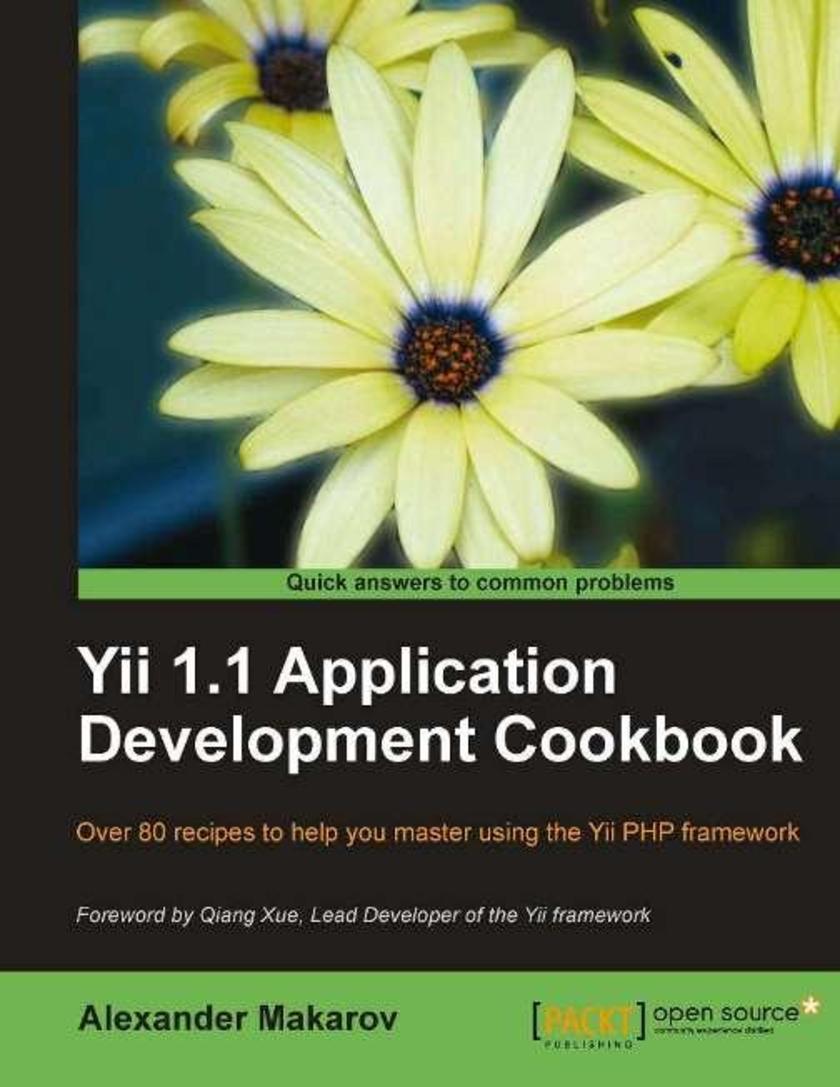
Yii 1.1 Application Development Cookbook
¥80.65
This book is a collection of Yii recipes with chapters generally independent of each other. It is full of practically useful solutions and concepts explained with code and the required pictorial illustrations. If you are a developer with a good knowledge of PHP5, are familiar with the basics of Yii, and have tried to develop applications using Yii, then this book is for you. Knowledge of the object oriented approach and MVC pattern will be a great advantage as Yii uses these extensively.

Windows Phone 7 Silverlight Cookbook
¥90.46
The book is written in a cookbook style, presenting examples in the style of recipes, allowing you to go directly to your topic of interest, or follow topics throughout a chapter to gain in-depth knowledge. All levels of developers and designers will be able to utilize this book. The language and examples are written for beginners but there are plenty of deeper concepts to explore and code to master.
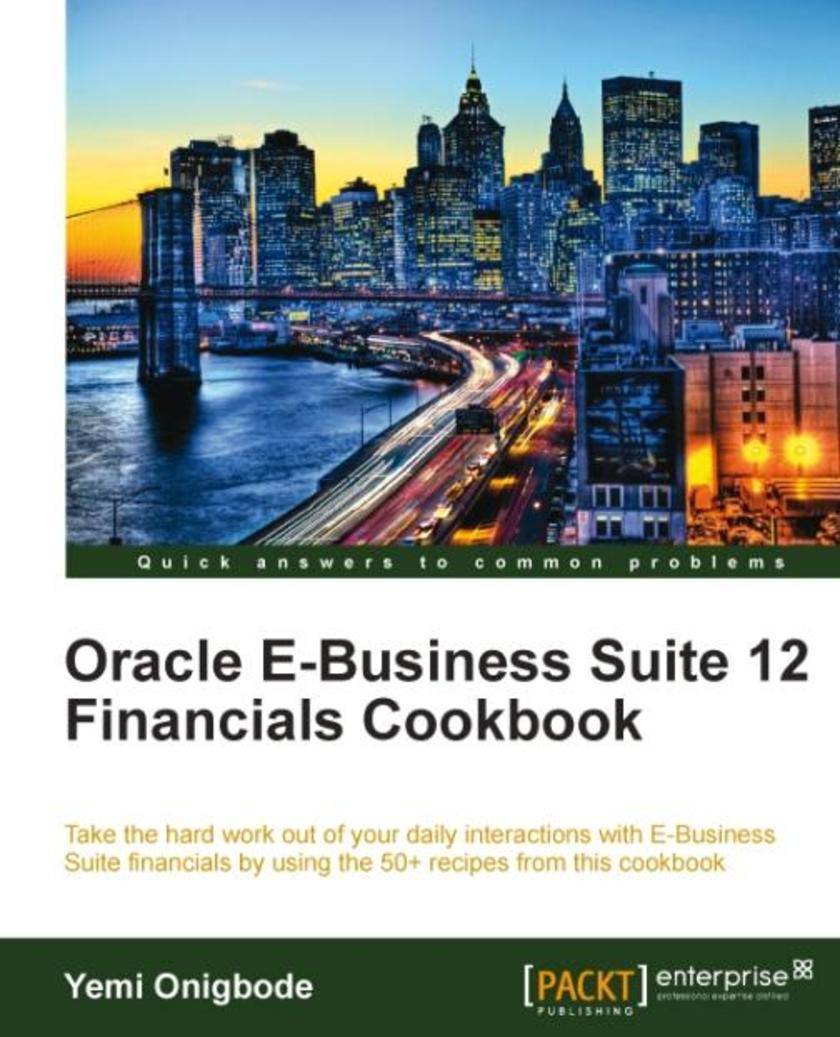
Oracle E-Business Suite 12 Financials Cookbook
¥125.34
There are many ways of configuring and using Oracle EBS R12 Financials. This cookbook demonstrates how to use EBS R12 Financials in a way that will enable you to understand the core functionalities of the main financials modules. Each recipe is presented as part of a scenario-based chapter that details typical business scenarios. This book is for EBS Financials specialists who want a broader understanding of particular areas of the financials modules. Businesses can use this book to identify key functionalities of the financial modules, and very quickly demonstrate a pilot to obtain the core requirements. If you are a Business Analyst, Functional Consultant, Technical Consultant, Project Sponsor, Project Manager, Project Team Member, System Accountant or Solution Designer, Testing Team Member, Training Team Member or Support Team Member, then this book is for you. This book assumes that you have basic navigation skills and you understand the key Oracle EBS terminology, novice EBS professionals will also gain from the expert content of this book.

Microsoft Windows Azure Development Cookbook
¥90.46
This cookbook offers practical, immediately usable task-based recipes covering a wide range of advanced development techniques for building highly scalable cloud-based services on the Windows Azure platform. It shows you how to improve these services and how to solve particular problems/scenarios when developing them on the Windows Azure platform. The solutions are presented in a clear step-by-step manner and explained in great detail, which makes them good learning material for everyone who has experience of the Windows Azure platform and wants to improve. The book is designed so that you can read it chapter by chapter or refer to recipes in no particular order. If you are an experienced Windows Azure developer or architect who wants to understand advanced development techniques when building highly scalable services using the Windows Azure platform, then this book is for you. You should have some exposure to Windows Azure and need basic understanding of Visual Studio, C#, SQL, .NET development, XML, and Web development concepts (HTTP, Services).
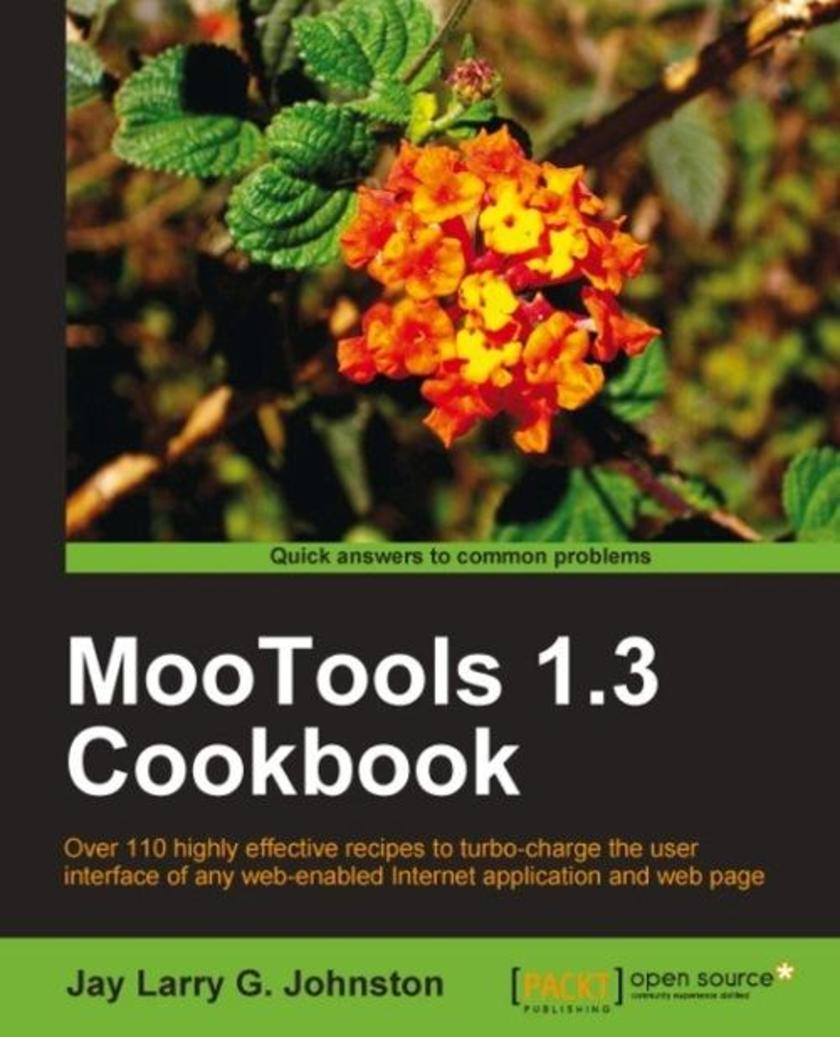
MooTools 1.3 Cookbook
¥80.65
This is a cookbook full of recipes with the essential code explained clearly and comprehensively. The recipes are organized so well that you will have no problems in using this cookbook as a reference too. Users of all skill levels will find this book useful. Advanced users will expand their knowledge of MooTools interaction, intermediate users will delve into new concepts of usage. Novice users will find they are carefully taken through each facet of knowledge necessary to rapidly become intermediate users.

Microsoft SQL Server 2008 R2 Master Data Services
¥99.18
This is a practical, step-by-step guide to managing and maintaining your master data and improving data quality with Microsoft SQL Server 2008 R2 Master Data Services, with practical examples on how to use each feature. If you are a business and systems analyst or database administrator who wants to manage and maintain your business master data and improve data quality with Microsoft SQL Server Master Data Services, then this book is for you. A basic understanding of Microsoft SQL Server is required. However, knowledge of Master Data Services is not necessarily required.
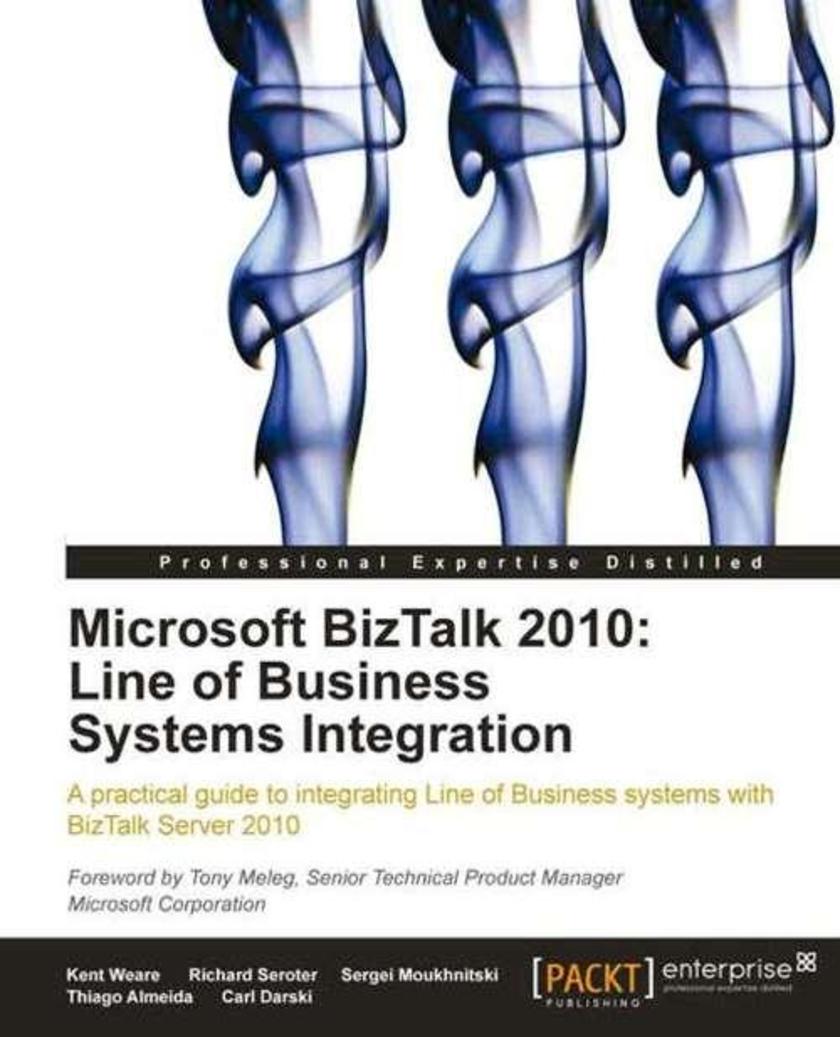
Microsoft BizTalk 2010: Line of Business Systems Integration
¥107.90
This book focuses on Microsoft BizTalk 2010; however, most of the concepts and explanations will apply to BizTalk 2006 R2 and BizTalk 2009. If you are an experienced BizTalk developer who wants to integrate BizTalk with Line of Business systems using practical scenarios, then this book is for you. A solid understanding of BizTalk at an intermediate level is required. This book assumes developers are comfortable creating schemas, maps, orchestrations, ports and messages in Visual Studio and configuring applications in the BizTalk Administration Console. However, experience in integrating with Line of Business systems is not necessarily required.
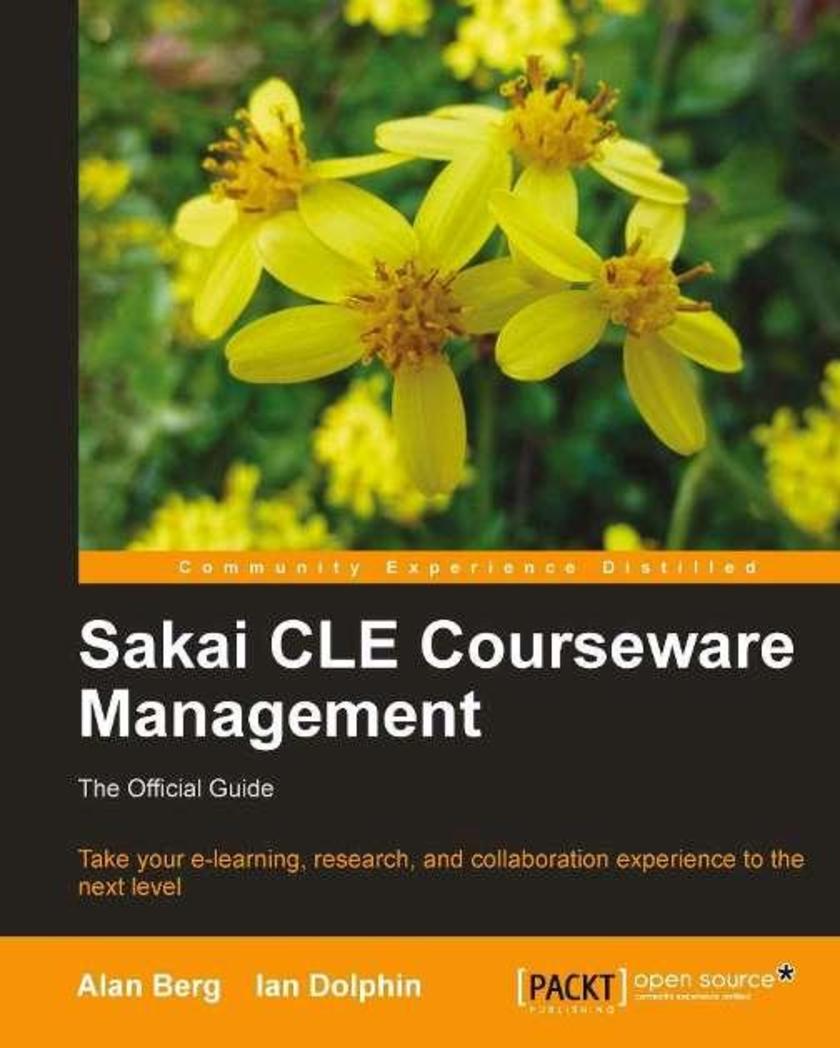
Sakai CLE Courseware Management
¥99.18
This book takes a step-by-step, practical approach and is filled with examples and illustrations. This book is written for a wide audience that includes teachers, system administrators, and first time developers. It also appeals to the Sakai open source community, potential community members, and decision makers working in education.
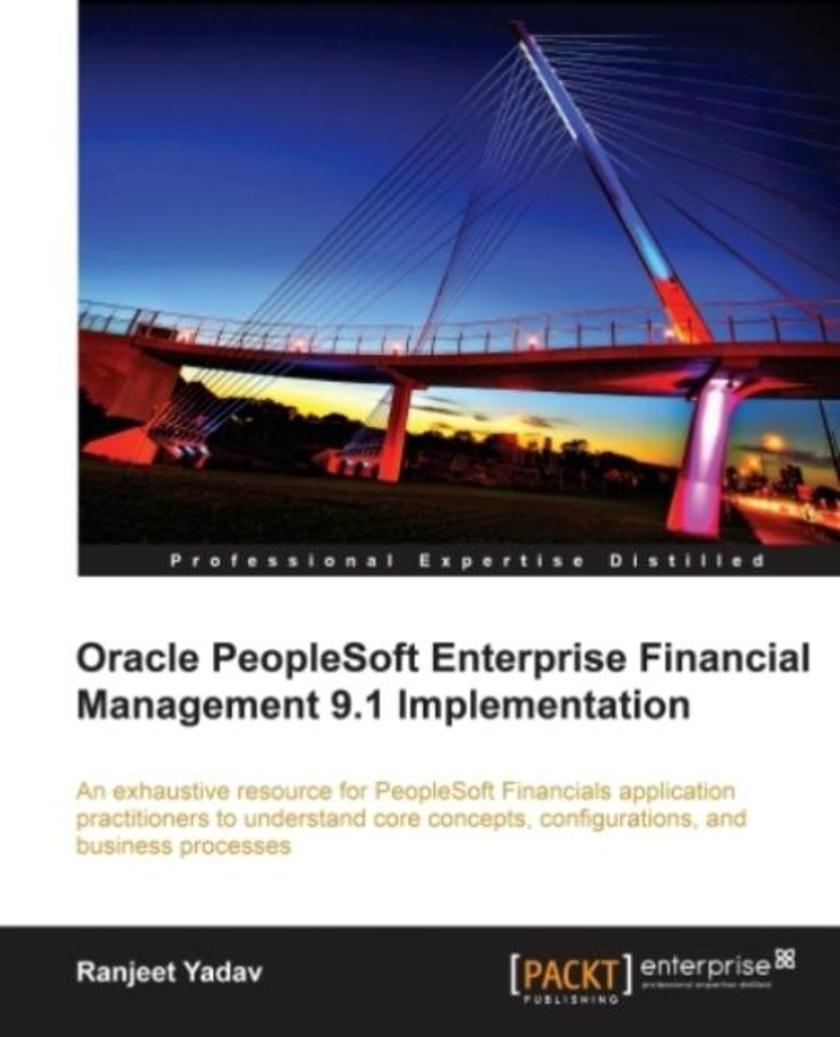
Oracle PeopleSoft Enterprise Financial Management 9.1 Implementation
¥99.18
This step-by-step tutorial will take you through Oracle PeopleSoft Financial Management 9.1 and show you how to implement it into your business. It is written in an easy-to-read style, with a strong emphasis on real-world, practical examples with step-by-step explanations. This book will establish a solid foundation for your efforts to become a successful PeopleSoft Financials practitioner. If you are a functional implementation analyst, a business analyst, or a business user who plans to start using PeopleSoft applications, this book is for you. Reading this book will equip you with the basic skills to configure and maintain PeopleSoft financial applications.
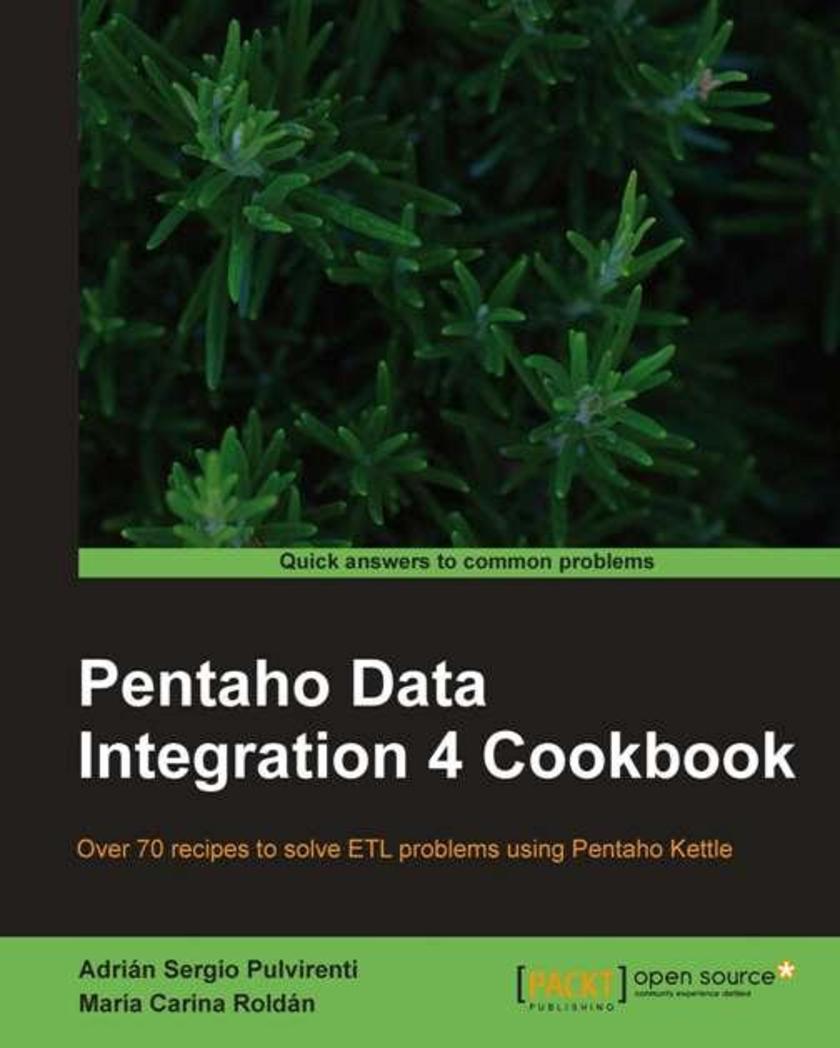
Pentaho Data Integration 4 Cookbook
¥80.65
This book has step-by-step instructions to solve data manipulation problems using PDI in the form of recipes. It has plenty of well-organized tips, screenshots, tables, and examples to aid quick and easy understanding. If you are a software developer or anyone involved or interested in developing ETL solutions, or in general, doing any kind of data manipulation, this book is for you. It does not cover PDI basics, SQL basics, or database concepts. You are expected to have a basic understanding of the PDI tool, SQL language, and databases.
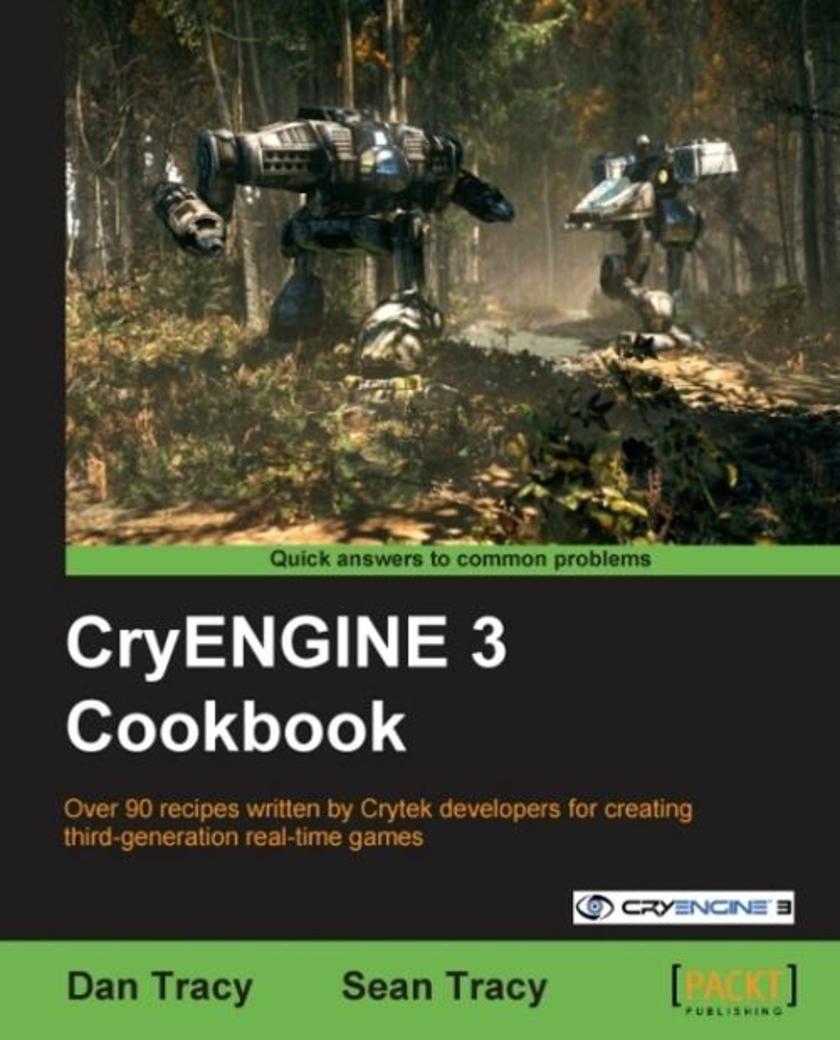
CryEngine 3 Cookbook
¥90.46
Written in a cookbook style, this book offers solutions using a recipe based approach. Each recipe contains step-by-step instructions followed by an analysis of what was done in each task and other useful information. The cookbook approach means you can dive into whatever recipes you want in no particular order. The CryENGINE3 Cookbook is written to be accessible to all developers currently using the CryENGINE3. It also explores the depth and power of the CryENGINE3 and is a useful guide to follow when becoming familiar with this award winning middle-ware game engine. This book is written with the casual and professional developer in mind. Fundamental knowledge of some Digital Content Creation Tools, like Photoshop and 3d Studio Max is required. The Software Development Kit version of the CryENGINE is used for all examples, so the reader should have a version of the development kit to follow the recipes contained in this book.

Microsoft SQL Server 2008 R2 Administration Cookbook
¥99.18
This book offers practical, task-based, and immediately usable recipes covering a wide range of advanced techniques for administering a high-performance SQL Server 2008 R2 system. In addition to its cookbook style, which ensures the solutions are presented in a clear step-by-step manner, its explanations go into great detail, which makes it good learning material for everyone who has experience in SQL Server and wants to improve. The book is designed in such a way that you can either read it chapter by chapter or refer to recipes that you want in no particular order. Although the book is focused on specific Microsoft SQL Server 2008 R2, most of the concepts and explanations are also applicable to SQL Server 2008. If you are an experienced database administrator and database architect who wants to design, administer, and manage a scalable and high-performance SQL Server 2008 R2 system, then this book is for you. The book assumes that you have a good understanding of database management systems, specifically experience in Microsoft SQL Server 2008 administration.
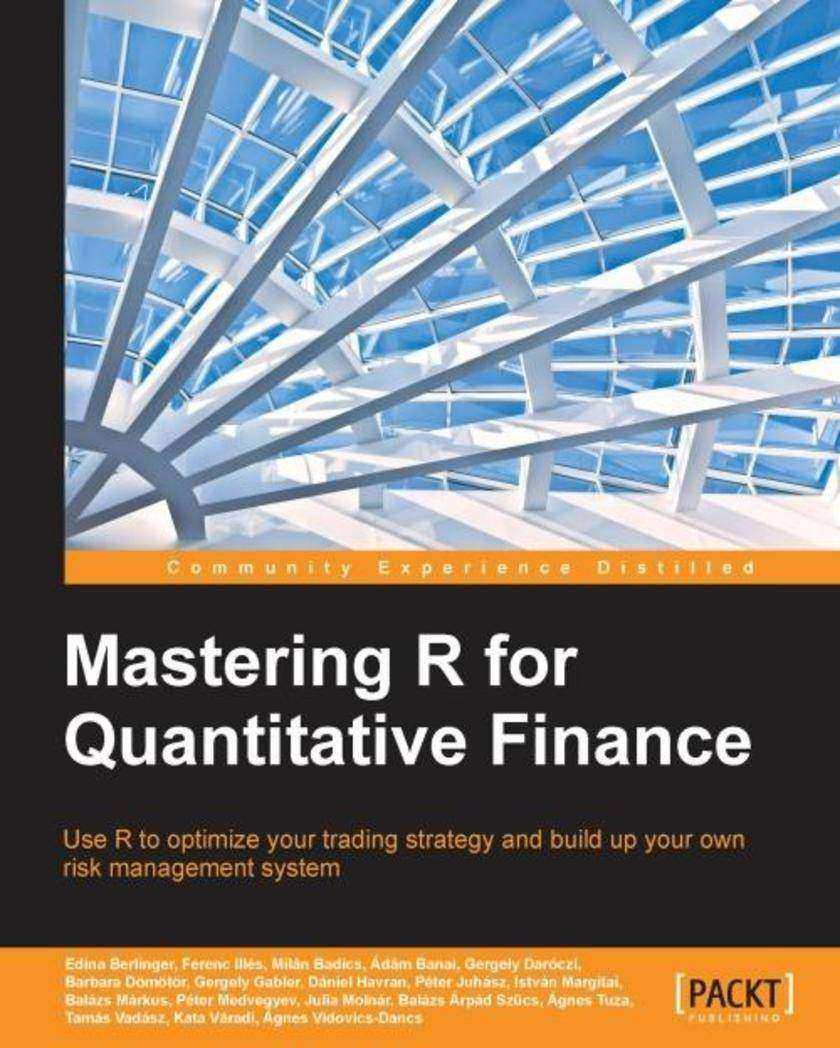
Mastering R for Quantitative Finance
¥90.46
This book is intended for those who want to learn how to use R's capabilities to build models in quantitative finance at a more advanced level. If you wish to perfectly take up the rhythm of the chapters, you need to be at an intermediate level in quantitative finance and you also need to have a reasonable knowledge of R.
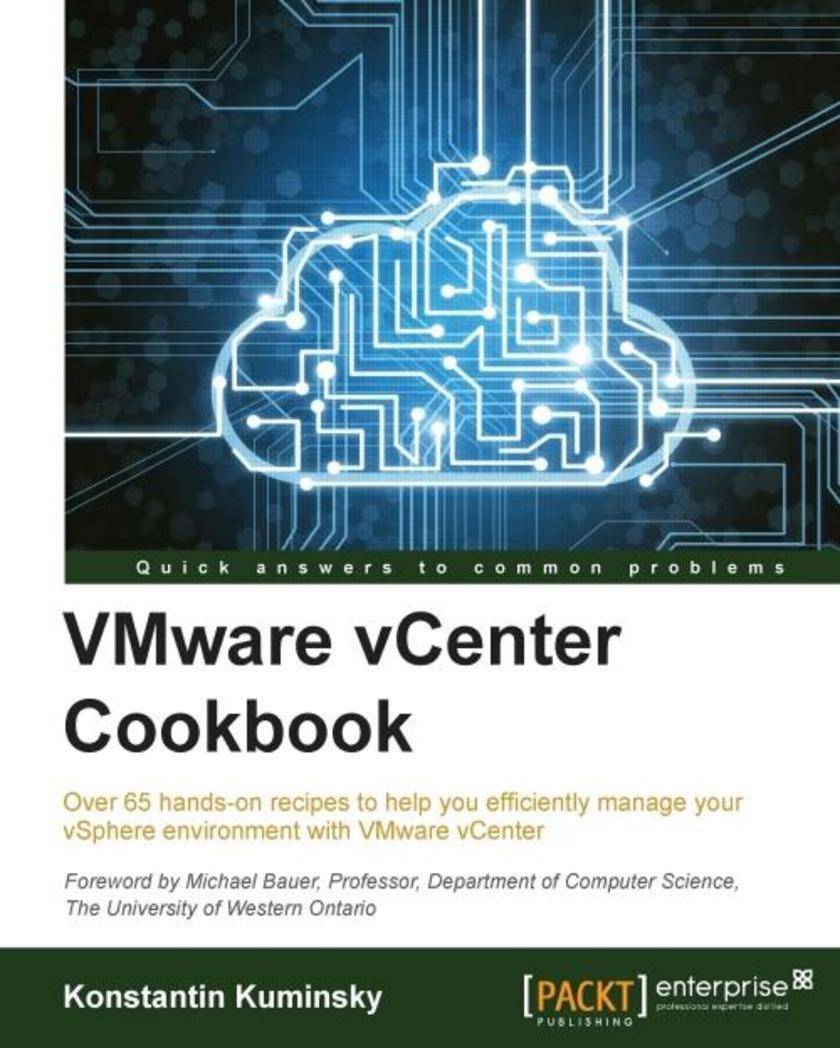
VMware vCenter Cookbook
¥99.18
If you are a system administrator who has some experience with virtualization and already uses VMware vCenter, but wishes to learn more, then this is the book for you. If you are looking for tips or shortcuts for common administration tasks as well as workarounds for pain points in vSphere administration, you'll find this guide useful.




 购物车
购物车 个人中心
个人中心



